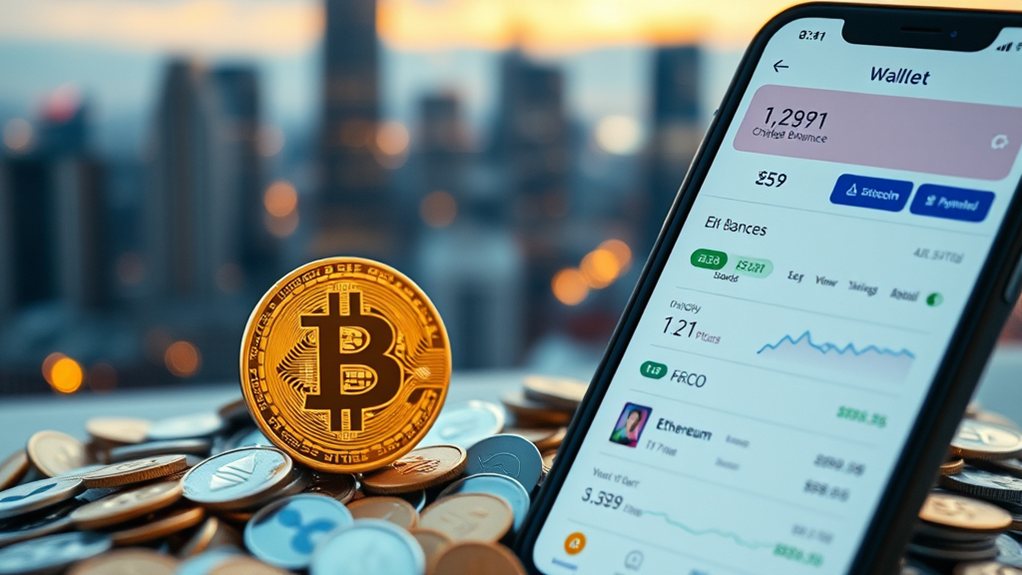Approximately 106 million people worldwide own Bitcoin, representing a portion of the 560 million total cryptocurrency owners globally. In the United States, 52.9 million Americans (15.56% of the population) own Bitcoin, though only 1% use it for payments. Bitcoin ownership is highest among millennials and Gen Z, who account for 94% of crypto purchases. The growing adoption rate continues despite many people's limited understanding of cryptocurrency.

Just how many people are using Bitcoin? The numbers show that about 106 million people around the world own Bitcoin today. That's part of a larger community of cryptocurrency owners that has grown to more than 560 million people worldwide, representing about 6.8% of the global population.
The United States has a strong Bitcoin presence with 52.9 million owners, making up 15.56% of the American population. However, Vietnam leads the world in cryptocurrency adoption by percentage, with 21.19% of its population owning some form of digital currency. India has the highest number of cryptocurrency owners at 93.5 million people, followed by China with 59.1 million. U.S. household involvement in crypto has increased substantially, with nearly 15% of individuals having transferred funds to crypto accounts by mid-2022.
Daily Bitcoin activity remains steady with about 50,000 confirmed transactions happening each day. Despite this volume, actual usage for payments remains low. In 2023, only 1% of U.S. adults used cryptocurrency to pay for something, and another 1% used it to send money to friends or family. This suggests that many Bitcoin owners see it more as an investment than a currency for daily transactions.
Bitcoin may be booming, but it's still used more for investment than as actual currency for everyday spending.
The demographic profile of Bitcoin users skews male, with men making up 61% of cryptocurrency owners compared to 39% female. Recent statistics show that approximately 58% of crypto owners identify as male, a trend that has remained relatively consistent. Age is also a significant factor, with 34% of crypto owners falling into the 25-34 age bracket. Millennials and Generation Z represent the vast majority of crypto buyers, accounting for 94% of purchases.
Awareness of Bitcoin continues to grow. About 89% of American adults have heard of Bitcoin, though awareness varies by demographic groups. White respondents showed higher awareness (80%) compared to Hispanic (66%) and African-American (61%) respondents. Men (78%) were somewhat more aware than women (71%).
Despite this high awareness, 69% of Americans admit they don't understand cryptocurrency. The adoption rate for cryptocurrency has been impressive, growing at a compound annual growth rate of 99%. Recent developments like Bitcoin ETF launches have triggered increased activity globally. In developing regions, stablecoin usage has grown particularly for retail and professional transfers. Despite Bitcoin's popularity, it represents just one of over 25,000 cryptocurrencies that exist in the increasingly saturated market.
Investment remains the primary reason people hold Bitcoin. About 7% of U.S. adults bought or held crypto as an investment in 2023. Among specific groups, 29% of millennial American parents own cryptocurrency, and 67% of millennial millionaires have over half their wealth in crypto assets.
While Bitcoin and other cryptocurrencies continue to gain users worldwide, there's still a gap between ownership and everyday use. Most people who own Bitcoin today are holding it rather than spending it, suggesting that its perceived value as a store of wealth currently outweighs its utility as a payment method.
Frequently Asked Questions
Is Bitcoin Legal in All Countries?
Bitcoin isn't legal in all countries.
It's currently legal in 119 nations but banned in 22 countries including China, Egypt, and Iraq.
Another 25 countries have a neutral stance.
Even where it's legal, regulations vary widely.
Only El Salvador has made Bitcoin legal tender.
Most countries are still developing their regulatory approaches, with 70% reviewing their frameworks in 2024.
How Do I Start Investing in Bitcoin?
Starting bitcoin investment involves a few basic steps.
First, investors choose a regulated cryptocurrency exchange like Coinbase or Binance.
Next, they set up a cryptocurrency wallet to store their bitcoin securely.
Then they fund their exchange account using a bank transfer or card.
Finally, they purchase bitcoin.
Many investors start with small amounts while learning about the cryptocurrency market's volatility and trends.
What Security Measures Protect Bitcoin Users?
Bitcoin users are protected by several security measures.
Cold storage and hardware wallets keep funds offline, away from hackers. Multi-signature technology requires multiple approvals for transactions. Users can enable two-factor authentication on exchanges and avoid public Wi-Fi connections.
The Bitcoin network itself uses encryption and a decentralized structure that makes attacks difficult. Regular software updates and verifying recipient addresses also help prevent theft.
Can Bitcoin Transactions Be Traced?
Bitcoin transactions can be traced. All transactions appear on the public blockchain, which anyone can view.
While users operate under pseudonyms, not real names, experts can often connect these dots. Law enforcement agencies use specialized software to track suspicious activity.
Tools like mixing services and privacy coins make tracking harder, but Bitcoin isn't completely anonymous. Government regulations increasingly require exchanges to collect user information, making transactions more traceable.
What Determines Bitcoin's Price Fluctuations?
Bitcoin's price fluctuations are determined by several key factors.
Supply and demand play a vital role, with Bitcoin's limited supply of 21 million coins.
Market sentiment shifts based on media coverage and social media buzz.
Government regulations can cause dramatic price changes.
Economic events like inflation affect Bitcoin's perceived value.
Additionally, institutional adoption, technical network changes, and competition from other cryptocurrencies all impact how Bitcoin's price moves day-to-day.














